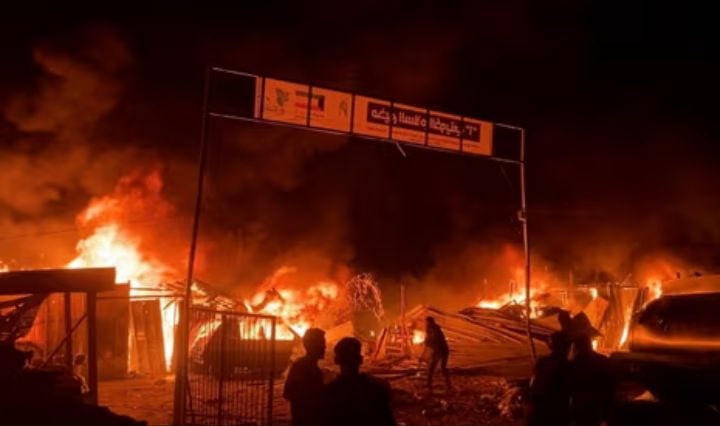Tensions between Israel and Iran have escalated dramatically in 2025, prompting a wave of military action and strong international reactions. But why would Israel take such a serious and dangerous step?
Here are five reasons Israel may believe it has no choice but to act — and quickly.
- Iran’s Accelerating Nuclear Program
One of Israel’s biggest security concerns is Iran’s alleged push toward developing a nuclear weapon. While Iran insists its nuclear program is peaceful, international watchdogs like the International Atomic Energy Agency (IAEA) have repeatedly flagged Tehran for breaching parts of the Nuclear Non-Proliferation Treaty.
According to Reuters, recent Israeli airstrikes targeted nuclear facilities in Natanz and Isfahan, which are believed to be central to Iran’s enrichment capabilities. Israeli officials argue that without intervention, Iran could cross the nuclear threshold — something Israeli Prime Minister and defense leadership call an “existential threat.”
- Elimination of Top Military Targets
Israel has reportedly succeeded in killing top Iranian military commanders and nuclear scientists during recent airstrikes. As covered by Al Jazeera, these individuals were considered vital to Iran’s defense and weapons infrastructure.
Israeli officials argue that preemptively neutralizing these figures weakens Iran’s offensive capabilities and buys time for further diplomatic or defensive strategies. They also claim it deters Iran from transferring knowledge and technology to regional proxies like Hezbollah.
- Iranian Missile Attacks on Israeli Cities
The threat isn’t theoretical — it’s happening now. Over 200 ballistic missiles were fired at Israeli territory this week, killing civilians and destroying homes, according to Reuters. Israel’s missile defense systems, including the Iron Dome and David’s Sling, intercepted many, but some still hit residential areas.
For many Israelis, this is no longer a debate — it’s self-defense. “We can’t live with missiles raining down on Tel Aviv,” one Israeli resident told a local news outlet. This kind of attack leaves Israel with a moral and strategic justification to strike back.
- Fear of Regional Escalation and Proxy Wars
Iran’s influence stretches across the region, through proxies like Hamas in Gaza and Hezbollah in Lebanon. Over the years, Israel has endured repeated cross-border attacks believed to be directed or funded by Tehran.
While Iran’s ability to use its proxies has diminished — due to the ongoing war in Gaza and internal challenges in Lebanon — Israeli intelligence fears that allowing Iran to recover and strengthen its regional arms would endanger not only Israel but its allies.
A preemptive strike, in Israel’s view, disrupts Iran’s coordination and sends a message to other hostile actors.
- Stalled Diplomacy and Lack of Trust
Despite multiple rounds of negotiations between Iran and the U.S. — including talks scheduled in Oman — very little progress has been made. Iran recently signaled that it might skip the next round entirely, citing what it calls “meaningless dialogue” (Al Jazeera).
Israel believes diplomacy is failing and that Iran uses negotiations as a smokescreen while continuing its nuclear buildup. From this perspective, military action isn’t a first choice, but a necessary last resort.
Final Thoughts
No one wants a full-scale war — not Israel, not Iran, and certainly not the global community. But when faced with missile attacks, nuclear threats, and stalled diplomacy, Israel argues that it has the right to protect its citizens.
Whether you’re following the story from Jerusalem, Tehran, or anywhere in the world, one thing is clear: this is a turning point in Middle East history. Let’s hope the coming days bring more dialogue than destruction.










